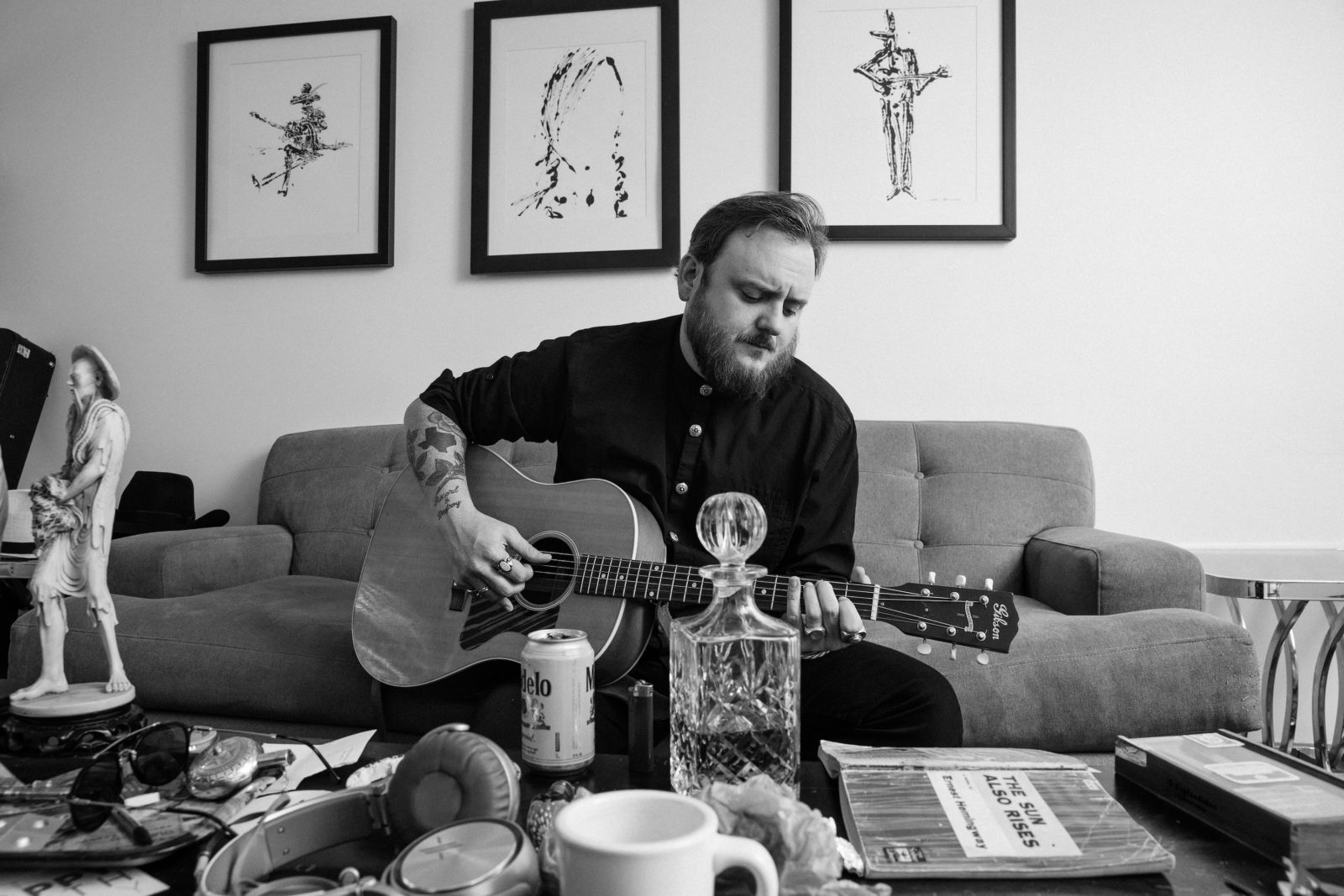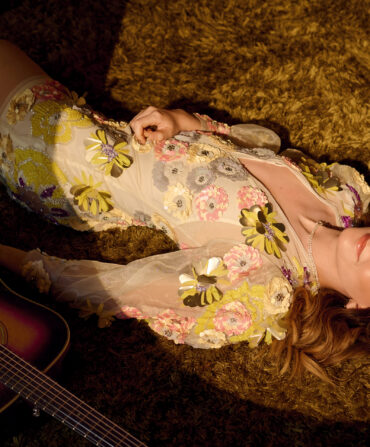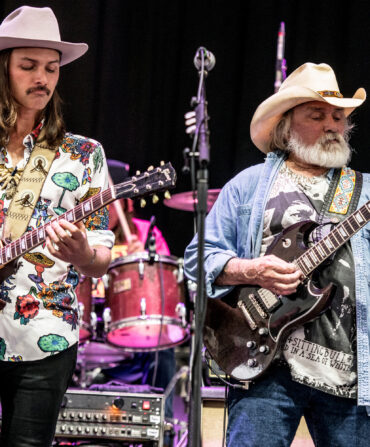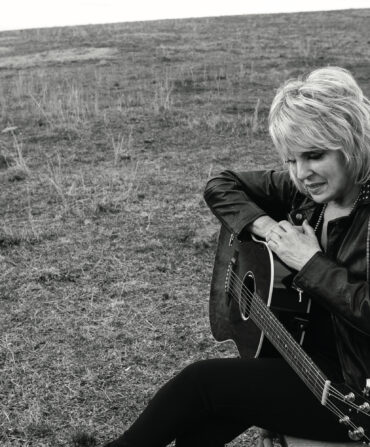Music
Don’t Put Paul Cauthen in a Box
A featured artist on Spotify’s Indigo playlist, the East Texas troubadour leans into a boundary-pushing sound
Sponsored Content


Photo: Anna Webber
Paul Cauthen is sure about one thing: He doesn’t want to label his music, and he doesn’t want you to, either.
“I think it’s all bulls—,” he declares when asked how he defines country music as a genre. “Everything, all genres, I think they just put everybody in a box. Good music and bad music, we gotta get back to that. I believe that it all leads with a good song—a song with meaning, you know, not a song that you sat around and workshopped like it’s a car. That’s the difference: It’s songs from the heart or not.”
The East Texas native’s aversion to putting his music in a box is one of the reasons he’s a featured artist on Spotify’s Indigo, a playlist dedicated to country’s perpetual evolution. Though countless sounds and influences bleed into Indigo’s ballads and boot-stompin’ hits, these artists—including Kacey Musgraves, Tyler Childers, Margo Price, and Jason Isbell—all share Cauthen’s pursuit of the perfect, twang-inflected song, especially if it means redefining expectations for country in the process. This ambition is apparent in every verse of Cauthen’s, from the bellowing swagger that runs through his debut album, My Gospel, to its pensive and eclectic follow-up, Room 41. Whether he’s crooning his devotion over a ’60s pop-style beat (“Angel”) or perfecting his own sultry jukebox staple long after last call (“Cocaine Country Dancing,” his contribution to Indigo), Cauthen’s intensity shines through as he lays waste to country cliches, one funky, brassy track at a time.
Below, Cauthen elaborates on his thoughts on country’s evolution, his own place within it, and other artists he’s proud to stand alongside on Indigo.
Do you find that country is moving away from its tendency to “put everybody in a box”?
I think we’re in a good turn. You’re getting more songwriters that are just really taking it to a new level. [Tyler] Childers, [Margo] Price—I just really enjoy their depth and songs. They’ve done well for themselves. If you can make it work in this business, I’ve got nothin’ but respect for you. In songwriting, those people that I’ve listed, they all went through things to write those songs, you know? [Price] pours it out in song, her and her husband. I’ve got a bunch of people I’m producing right now that are just young guns that nobody knows anything about, some people who have been on Spotify and stuff like that, but I’m just following good songs and honesty.
Who are some trailblazers that made that a possibility? Who pushed the limits of country beyond Music Row?
It started with the Outlaw Country movement. You can go back to Willie [Nelson], Waylon [Jennings] and all that, but I believe that Ray Charles singing Willie Nelson’s country music changed everything. Period. It brought the crossover of country people loving R&B, and vice versa. That’s the beauty of music, when you make things like that happen. In modern times, you look at Sturgill Simpson, who did a big shift, Chris Stapleton, even, on the bigger-tier Nashville level. Traveller is beautiful because he felt it: He lost his dad, bought a Jeep, drove it all the way out west, wrote all these songs, and that’s why it’s a real record. Sturgill kind of pays homage to what Waylon did. Childers comes out really swingin’ from Kentucky with that vibe. You get Price, who was heated up after Midwest Farmer’s Daughter. I think Leah Blevins is going to be the biggest thing to hit country music coming up in the next year, she’s incredible. And then my record, My Gospel, a gospel-y thing people were liking. It was an organic thing. It’s all happening in a good way.
“America,” the new single you wrote with Aaron Lee Tasjan, dropped in June. It’s quite a moving track—and it’s an especially cathartic listen right now. Walk me through the day you recorded it.
I was driving by myself, and I went to Muscle Shoals, Alabama. I called up the engineer of Fame Studios. I said, “Hey man, I’ve gotta put down this song.” He was like, “All right, I was supposed to have this one band in there.” I asked, “If you have anything open, maybe ask them to move to tomorrow or something?” He goes, “Yeah, I can get you one day.” I went in there and started with the high-hats and kick drums, and I just built the track by myself. I played all the parts: I built this sixteenth roll kind of thing; I went and played the bass; then I played the guitar and sang it live. I finished it up at Fame and brought it back, and we opened it all back up, like, damn, we should put this out.
Do any songs, in particular, stand out as crucial moments in your story?
The song “My Gospel” is my ode to myself. I finished it on Aretha Franklin’s piano in Muscle Shoals. It’s a song that I believe my granddad would be proud of. It’s just kind of who I really strive to be. You always fall short of what you really, really, really want. That’s how we grow. “Holy Ghost Fire” is another one—it’s a spiritual journey I’m having with myself. It’s how I can get through times, through songs. And then I have some songs that are just fun—like “Cocaine Country Dancing.” They’re a little more lighthearted but still wild.
In terms of your next show—whenever that will safely be—what’s the first song you want to play when you hit that stage?
“Holy Ghost Fire” or “Freak.” Just something that amps it up. I’d also like to come out there and probably play “Angel” or something acoustic, something real pretty and downbeat, rip the roof off the place like my band does.
So many genres meld in your music: We have country, of course, but also blues, gospel, doo-wop, new wave, psychedelic rock and roll and more. There’s a lot going on here. Why is Indigo an ideal match for you?
I’m just open to putting my music out to the masses, and I’m thumbs-up for any playlist on Spotify—especially ones that have good taste. You wouldn’t put me in with a Run DMC record, probably, but I’m down for that! Indigo, I looked at all the different artists, and it’s a good palette, a wide range of music. I know everybody on there: Brent Cobb, Charley Crockett, Colter Wall, Childers, Jonathan Terrell, Margo Price, Cleto [Cordero] from Flatland Cavalry, I know all the Midland Guys, Zephaniah OHora from the New York area. Orville Peck is on there, love that dude. Marcus King, of course, Kacey Musgraves—I like it all.
Indigo is a Spotify playlist featuring artists who embody the heritage of country music while bringing forth their forward-thinking songwriting, production and lyrics. Listen now to hear songs by Cauthen and many others.







